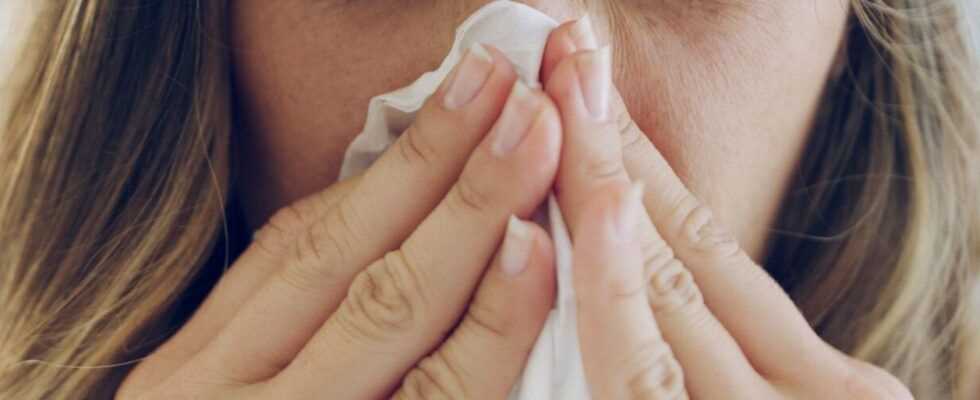The National Aerobiological Surveillance Network (RNSA) announces a very high risk of allergy in almost all of France.
The crying eyes and the handkerchief in the nose. No, we do not describe our state to you after watching an emotionally charged film, but rather we tell you about the scourge of allergies. This sweet gift that returns in fine weather. According to the National Aerobiological Surveillance Network (RNSA), almost all of French territory is placed at "very high" risk of allergy linked to pollen. "The risk of allergy will be high or very high throughout the country in the coming days for grass pollens which will be the main discomfort of allergy sufferers," the network said in its bulletin of May 29.
"The pollens of oaks have almost disappeared from circulation except around the Mediterranean where the risk of allergy may still reach the average level in certain places. It is precisely on the Mediterranean rim that it will be necessary to monitor the pollen of olive trees and parietaria (urticaceae) which will be responsible for a low to locally average risk of allergy. Pollens from sorrel, plantain and urticaceae will also be present in low to moderate quantity throughout the territory with a risk of low level allergy, "said the organization.
According to the RNSA, the weather conditions are met to have an exceptional season.
Sun and heat which will therefore promote the dissemination of high concentrations of grass pollen in the air.
What can be done to limit the effects? The network advises people with allergies to follow their treatment well, and in case of symptoms, do not hesitate to consult a doctor or an allergist. He also specifies to "rinse the hair in the evening, ventilate at least 10 min a day before sunrise and after sunset, avoid drying the laundry outside, keep the windows of cars closed" and "finally avoid outdoor sporting activities which lead to overexposure to pollen ".
A vaccine to stop allergy to cats
by Celine Peschard
